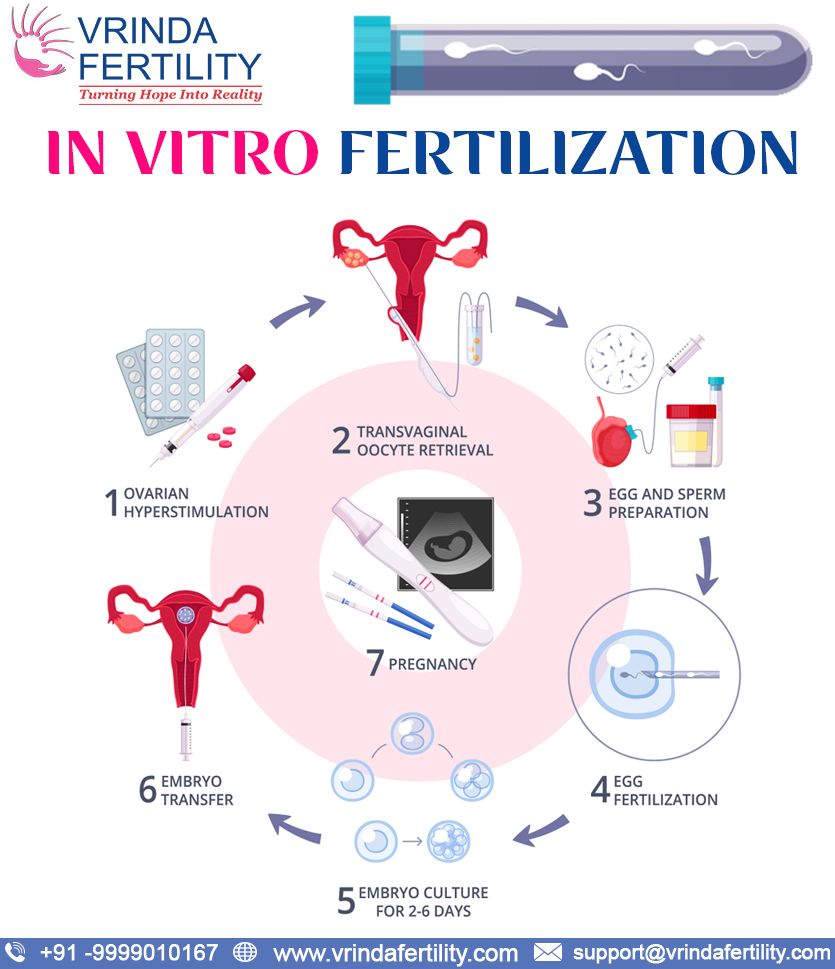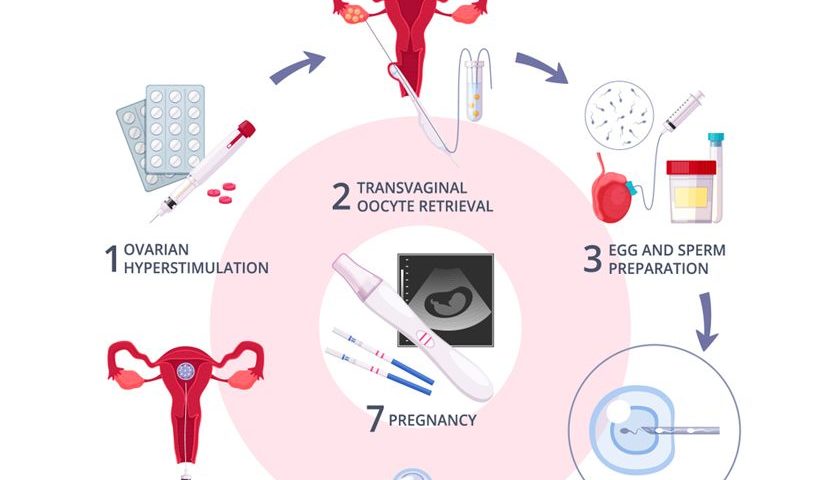The True Cost of IVF: What You Need to Know Before Starting Your Journey
March 27, 2025IVF Near Me: Your Ultimate Guide to Finding the Perfect Fertility Clinic
So, you’ve typed “IVF near me” into your search bar, and now you’re staring at a million options, reviews, and opinions. It’s overwhelming, right? Don’t worry—I’ve got your back. This isn’t just another generic article about fertility clinics. We’re diving deep into the stuff most people don’t talk about: the hidden struggles, the quirky details, and the real questions you’re too shy to ask. Whether you’re new to in vitro fertilization (IVF) or you’ve been down this road before, this guide is packed with fresh insights, practical tips, and the latest info to help you find the perfect clinic close to home.
Let’s break it down together—step by step, no fluff, just the good stuff.
What Is IVF, and Why Are You Searching “Near Me”?
IVF stands for in vitro fertilization, a process where doctors take an egg and sperm, mix them in a lab, and then place the resulting embryo into the uterus. It’s like a science experiment for making babies—but way more emotional and personal. If you’re searching “IVF near me,” chances are you’re ready to take a big step toward starting or growing your family. Maybe you’ve been trying for months (or years), or maybe a doctor just dropped the “infertility” word in your lap. Either way, you’re not alone—about 1 in 8 couples in the U.S. face fertility challenges, according to the CDC.
But why “near me”? Convenience is huge. IVF isn’t a one-and-done deal. It involves multiple appointments—blood tests, ultrasounds, egg retrieval, embryo transfers—and that’s before you even get to the waiting game. Having a clinic nearby can save you hours of driving and a ton of stress. Plus, there’s something comforting about knowing help is just around the corner when you need it.
The Emotional Side Nobody Talks About
Sure, IVF is a medical process, but it’s also an emotional rollercoaster. One minute you’re hopeful, the next you’re crying over a negative test. A lot of folks don’t realize how much this journey tests your patience—and your relationships. Imagine this: You’re sitting in a waiting room, surrounded by pregnancy magazines, while you’re still wondering if this will ever work for you. It’s tough. That’s why finding a clinic that feels like a safe space is key.
Quick Tips to Start Your Search
- ✔️ Check distance: Use Google Maps to see how far each clinic is from your house. Aim for under an hour if possible.
- ✔️ Look at reviews: Real patients spill the tea—good and bad—on sites like Yelp or Healthgrades.
- ❌ Don’t just pick the cheapest: Low cost might mean fewer resources or less experienced staff.

What Makes a Great IVF Clinic?
Not all fertility clinics are created equal. Some are like hidden gems, while others might leave you feeling like a number. So, what should you look for when you’re Googling “IVF near me”? Let’s unpack the must-haves.
Success Rates—But Don’t Obsess Over Them
Every clinic brags about their success rates, and you’ll see numbers like “55% live birth rate” splashed on websites. That’s great, but here’s the catch: those stats don’t tell the whole story. A clinic might have high success rates because they only take “easy” cases—like younger patients with no major issues. The Society for Assisted Reproductive Technology (SART) tracks these numbers, and in 2023, the national average for women under 35 was about 54.7% for fresh embryo transfers. For women over 40? It drops to around 12%.
How to Read Success Rates Like a Pro
- Age matters: Look for rates specific to your age group.
- Fresh vs. frozen: Frozen embryo transfers (FET) are trending up—some studies say they might even have better outcomes for certain patients.
- Dig deeper: Ask the clinic how many cycles they’ve done. More experience can mean better care.
Pro Tip: Call the clinic and ask, “What’s your success rate for someone like me?” It’s a simple question that cuts through the hype.
The Staff—Your New Best Friends (or Not)
The doctors and nurses you’ll work with are a big deal. A great team doesn’t just know their stuff—they make you feel heard. Dr. Jane Frederick, a fertility expert in California, once said, “The best IVF outcomes come when patients trust their team completely.” That trust starts with little things: Do they explain stuff clearly? Do they return your calls? Are they patient when you’re freaking out about a late period?
Red Flags to Watch For
- ❌ Rushed appointments: If they’re in and out in 10 minutes, that’s a problem.
- ❌ No personal touch: You want a team that remembers your name, not just your chart number.
- ✔️ Bonus points: Look for clinics with counselors on staff. IVF can mess with your head, and having someone to talk to is gold.
Technology and Lab Quality
The lab is where the magic happens—literally. A top-notch lab can make or break your IVF cycle. Look for clinics that use cutting-edge tech like time-lapse imaging (it watches embryos grow in real-time) or preimplantation genetic testing (PGT) to screen for healthy embryos. A 2024 study from the American Society for Reproductive Medicine found that clinics with advanced labs had a 15% higher success rate for tricky cases.
Questions to Ask About the Lab
- “Do you have an on-site lab, or do you ship embryos somewhere else?”
- “What kind of equipment do you use?”
- “How often do you update your tech?”
The Cost of IVF—What’s the Real Price Tag?
Let’s talk money. IVF isn’t cheap, and it’s one of the biggest things people worry about when searching “IVF near me.” The average cost in the U.S. is $12,000 to $15,000 per cycle, according to the American Society for Reproductive Medicine. That’s just the basics—add in meds ($3,000-$5,000), testing, and extras like PGT, and you’re looking at $20,000 or more. Yikes.
Hidden Costs You Didn’t See Coming
Here’s where it gets sneaky. Some clinics advertise low prices, but then you’re hit with surprise fees. Ever heard of an “embryo storage fee”? It’s a thing—about $500 a year to keep your frozen embryos on ice. Or how about anesthesia for egg retrieval? That’s another $500-$1,000 if it’s not included.
How to Budget Like a Boss
- ✔️ Ask for a full breakdown: Get every cost in writing before you sign up.
- ✔️ Check insurance: Only 19 states have laws requiring some IVF coverage—find out if yours is one of them.
- ❌ Don’t skip the fine print: Payment plans sound great until you see the interest rates.
Affordable Options Near You
Good news: Some clinics offer discounts or financing. Look for “shared risk” programs where you pay a flat fee (like $25,000) for multiple cycles, and they refund part of it if it doesn’t work. There are also grants—Resolve.org lists a bunch you can apply for. And if you’re near a university hospital, they sometimes have lower rates for research programs.
The IVF Process—What’s It Really Like?
You’ve found a clinic near you—now what? The IVF process can feel like a marathon, so let’s walk through it. Spoiler: It’s not all needles and waiting rooms (okay, it’s a lot of that, but there’s more to it).
Step 1—Stimulation and Egg Retrieval
First, you’ll take hormone shots to make your ovaries produce more eggs. It’s like telling your body, “Hey, let’s overachieve this month!” After about 10-14 days, a doctor retrieves the eggs with a tiny needle while you’re under light sedation. Sounds scary, but most people say it’s no big deal—just a weird pressure.
What to Expect
- Side effects: Bloating, mood swings, and sore spots from shots. Stock up on comfy pants!
- Time: Plan for 2-3 weeks of daily check-ins.
- Tip: Bring a buddy for retrieval day—you’ll be groggy after.
Step 2—Fertilization and Embryo Growth
In the lab, your eggs meet the sperm (yours or a donor’s). Scientists watch the embryos grow for 5-6 days, picking the strongest ones. This part’s wild—some clinics let you see pics of your embryos. It’s like a baby’s first photo shoot!
Step 3—Embryo Transfer and the Two-Week Wait
The doctor places an embryo (or two) into your uterus with a thin tube. It’s quick and usually painless. Then comes the hardest part: waiting two weeks to see if it worked. You’ll take a pregnancy test—and either celebrate or cry (or both).
Surviving the Wait
- ✔️ Distractions: Binge a new show or start a hobby.
- ❌ Don’t test early: Those home tests can lie and mess with your head.
- Latest research: A 2024 study showed stress doesn’t ruin IVF chances—so try to relax!

Finding “IVF Near Me”—The Secret Sauce
Okay, you’ve got the basics. But how do you actually find the best clinic near you? Here’s where a lot of articles skim the surface—I’m going deeper.
Location Hacks Nobody Mentions
Sure, you want a clinic close by, but think about this: Is it near your work? Your partner’s job? What about traffic? A clinic 20 miles away might take an hour in rush hour, and that’s a nightmare when you’re late for an ultrasound. Use apps like Waze to test drive times.
Mapping It Out
- List your top 3 daily spots (home, work, gym).
- Search “IVF clinics” on Google Maps.
- Filter by distance and reviews—aim for 4+ stars.
The Power of Word of Mouth
Online reviews are great, but real-life stories are better. Ask friends, coworkers, even your hairdresser if they know someone who’s done IVF. People love sharing their journeys—and their warnings. One woman I know found her clinic because her neighbor raved about the “super sweet nurse who brought her tea.”
Virtual Consults—A Game Changer
Here’s something new: Many clinics now offer online first visits. You can chat with a doctor from your couch before committing. It’s perfect for scoping out multiple places without wasting gas. A 2023 survey found 68% of patients liked virtual consults because they felt less pressure.

Weird IVF Facts You’ll Wish You Knew Sooner
Let’s lighten things up with some quirky stuff about IVF. These tidbits might not make or break your clinic choice, but they’ll definitely spark some dinner-table chats.
The Pet Connection
Did you know some clinics let you bring your dog to appointments? It’s not common, but a few near big cities have “pet-friendly” policies to ease stress. There’s even research from 2022 showing pets can lower cortisol levels during fertility treatments. So, if you’re a fur parent, ask about this!
The Coffee Debate
Caffeine and IVF—friends or foes? Old advice said to ditch coffee, but a 2024 study from Fertility and Sterility found moderate coffee (1-2 cups a day) doesn’t hurt your chances. Dr. Sarah Johnson, a reproductive endocrinologist, said, “It’s more about balance than bans.” Still, skip the triple espresso.
Celebrity IVF Secrets
Ever wonder how stars like Chrissy Teigen or Kim Kardashian had their kids? Many used IVF—and they’re not shy about it. Teigen once shared she picked her embryo’s gender, which PGT can do. It’s a cool peek into how far this tech has come.
Questions You’re Too Afraid to Ask
IVF comes with a lot of “what ifs” that don’t always make it into the brochures. Let’s tackle some of those awkward ones.
What If It Fails?
Failure sucks—it’s that simple. About 40-50% of cycles don’t end in a baby, depending on age and other factors. But here’s the upside: Most clinics will analyze what went wrong and tweak the next round. Some even offer “multi-cycle” packages to soften the blow.
Coping Tips
- ✔️ Talk it out: Find a support group (online or local).
- ❌ Don’t blame yourself: It’s biology, not your fault.
- Next steps: Ask your doc about frozen embryos or donor options.
Can I Still Work During IVF?
Yes, but it’s tricky. The hormone shots can make you tired or cranky, and you’ll need time off for retrieval and transfer. Plan ahead—tell your boss you’ve got “medical stuff” if you’re not ready to spill the beans.
Does It Hurt?
Not really. The shots sting a bit (think mosquito bite), and retrieval feels weird, but sedation helps. The transfer? Most say it’s like a Pap smear—uncomfy but quick.
The Future of IVF—What’s Coming?
IVF isn’t standing still. New tech and research are shaking things up, and that could change what “IVF near me” means in a few years.
AI in the Lab
Artificial intelligence is picking embryos now. A 2024 trial showed AI could spot the best ones 20% faster than humans, boosting success rates by about 10%. Some clinics near tech hubs like San Francisco are already testing this.
At-Home Monitoring
Imagine skipping half your appointments. New devices let you track hormones or follicle growth from home with a phone app. It’s still in early stages, but it could make “near me” less important.
Cheaper Options
Scientists are working on “mini-IVF,” a lighter version with fewer drugs and lower costs (around $5,000-$7,000). It’s not everywhere yet, but keep an eye out—your local clinic might jump on this soon.
Your Action Plan—Start Today!
Ready to find the perfect “IVF near me”? Here’s your step-by-step guide to kick things off.
Step 1—Make a Shortlist
- Search “IVF clinics near me” on Google.
- Write down 3-5 options with good reviews and reasonable drive times.
- Check their websites for success rates and services.
Step 2—Call or Click
- Book a consult (virtual or in-person) with your top picks.
- Ask: “What’s included in the cost?” and “What’s your success rate for my age?”
Step 3—Visit and Vibe
- Tour your favorite clinic. Is it clean? Friendly? Do you feel good there?
- Trust your gut—if it feels off, move on.
Bonus Checklist
| Task | Done? |
|---|---|
| Search online | ✔️ |
| Read reviews | ✔️ |
| Call for costs | ❌ |
| Schedule a consult | ❌ |
| Visit in person | ❌ |
Let’s Chat—What’s Your Story?
This journey’s personal, and I’d love to hear from you. What’s driving you to search “IVF near me”? Are you nervous, excited, or both? Drop a comment below—share your hopes, fears, or even a funny clinic story. Maybe you’ve got a question I didn’t cover. Let’s make this a convo, not just a read. And if you found this helpful, pass it along to someone else who’s starting out—they’ll thank you!
